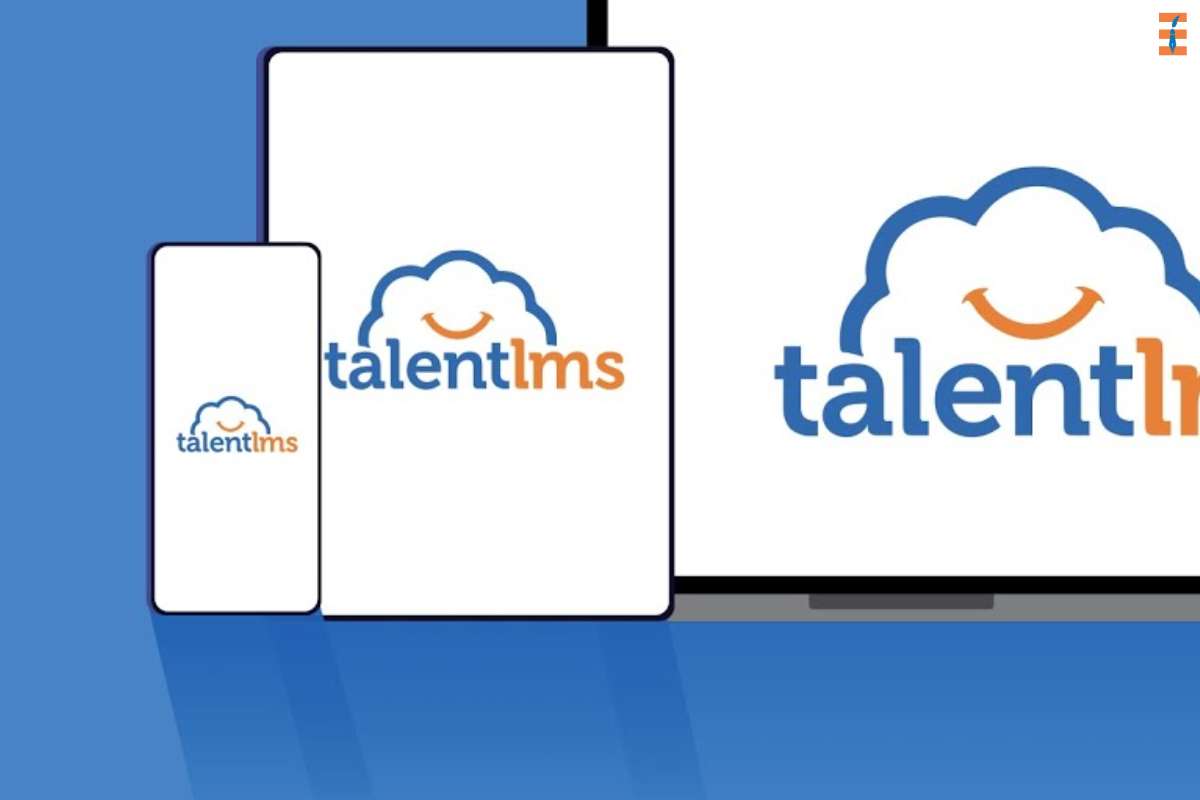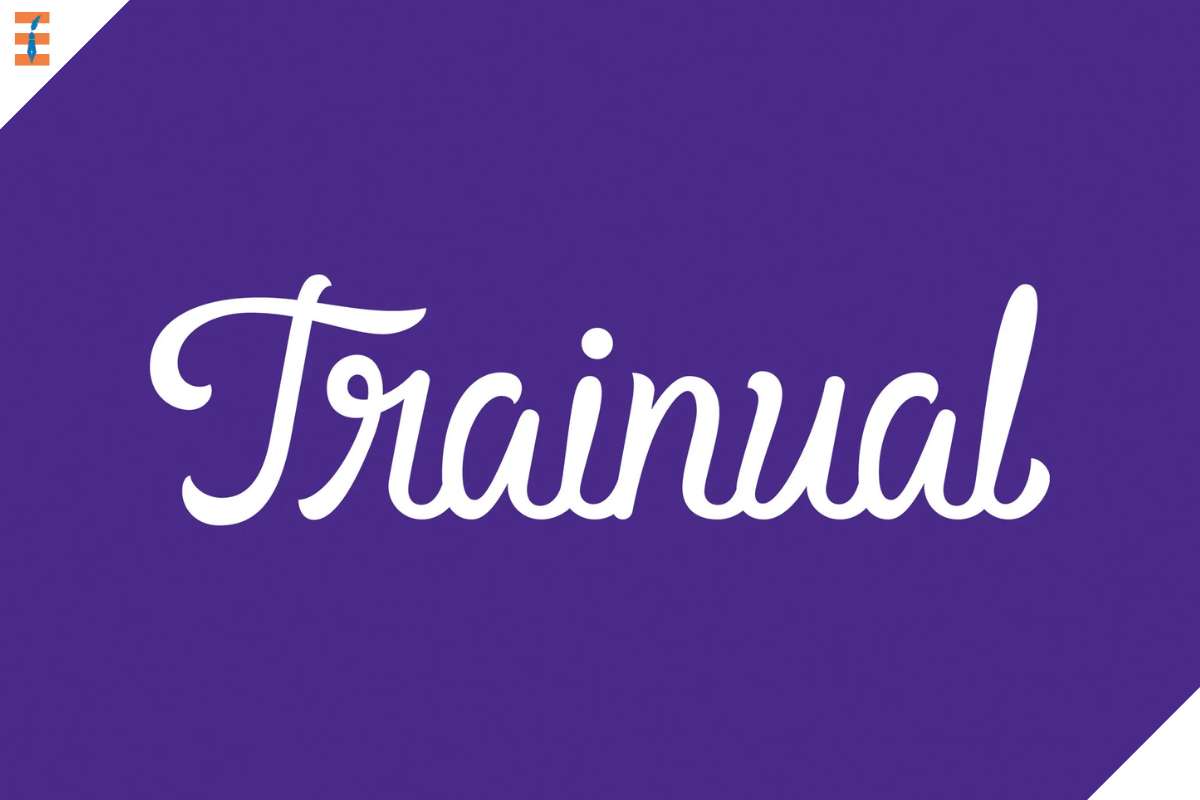With the help of HR software, managers and HR professionals can design and distribute training and development courses to their staff, as well as track attendance and performance.
Using a wide range of online courses, e-learning tools for businesses, quizzes, interactive content, gamification, and other methods, these resources enable HR departments to standardize an employee training and development procedure across the entire organization’s employee training methods, from onboarding to managerial development to software training and beyond.
Here are 9 Top E-learning Tools for Businesses:
1. TalentLMS

TalentLMS is an enterprise LMS built around the needs of training and onboarding new workers and ensuring ongoing compliance education. With only a few clicks of the mouse, businesses can develop engaging e-learning programs for their employees. TalentLMS’s mobile-friendliness means that workers may begin and pause their training whenever it’s most convenient for them. It also gives simple e-learning tools for businesses, so businesses may make courses that are consistent with their corporate identity.
2. Docebo
Docebo is an artificial intelligence (AI)-driven LMS and learning platform that gives businesses access to crowdsourced employee training programs from the most successful corporate businesses, as well as the ability to create their own bespoke learning courses.
Its AI-powered learning and program improvement capabilities allow you to provide superior training and development opportunities for your staff, while its analytics and impact measurement e-learning tools for businesses allow you to quantify the programs’ effectiveness.
3. Whatfix
Whatfix is a digital adoption platform that facilitates the development of e-learning courses for the purpose of training and onboarding staff members to use preexisting software systems like Salesforce, NetSuite, Microsoft Dynamics, and more, as well as a self-service user knowledge center for ongoing education.
Your staff can quickly learn to use Whatifix by following the app’s in-app instructions and interactive walkthroughs. Employees may access these knowledge bases independently of IT and help desk requests, allowing for continuous education and development.
Moreover, it helps your staff maximize the return on investment (ROI) of their software platforms by alerting them to new features and recommending training at optimal times.
4. SAP Litmos
Another workplace learning management system (LMS) that businesses may use to design their own online courses and programs for workers is SAP Litmos. It has an extensive collection of high-quality video tutorials covering a wide variety of useful business skills. It is equipped with security and analytics tools tailored to the needs of large businesses in the IT, NGO, retail, hotel, and healthcare sectors. It also supports white-label content creation.
5. Trainual
Trainual is a one-stop-shop for small and medium-sized businesses (SMBs) and fast-growing enterprises (FTEs) in terms of staff training and compliance. With its course development e-learning tools for businesses, HR departments have access to a vast library of pre-made training modules.

Trainual may also be used to build internal knowledge bases, providing staff with a searchable wiki for reference materials and frequently asked questions. Trainual also interfaces with hundreds of other e-learning tools for businesses like Gusto, Slack, Justworks, Zenefits, and many more, and automates mundane processes like onboarding new employees.
6. Lessonly
Lessonly is software designed to streamline the process of developing, delivering, and managing training for an organization’s workforce. Lessonly is a training platform where workers may take courses developed just for them, as well as take mock tests and quizzes whenever they want to demonstrate mastery of the material. For ongoing staff growth and development, the system includes employee empowerment and coaching tools including one-on-one feedback and in-app training.
7. LearnUpon

LearnUpon is another learning management system (LMS) that gives human resources a suite of tools to create, assign, monitor, and evaluate corporate employee training and learning programs from a single location. LearnUpon is a platform that helps businesses build internal wikis and knowledge bases where staff members can go to learn about company rules and get answers to frequently asked questions. It also includes capabilities for training specialized teams, such as sales training, and offers solutions to improve your company’s onboarding and development processes.
8. Proprofs Training Maker
ProProfs is a software package that helps businesses design internal training and development programs for their staff. Training Maker, ProProfs’ Learning Management System, helps businesses create e-learning courses and materials for their clients. Its Knowledge Base offering offers businesses an internal resource where staff members can look up answers to frequently asked questions or consult a wiki-style encyclopedia to solve their own issues. Its “Quiz Maker” feature lets HR departments and managers check up on their staff’s knowledge retention after training and onboarding.
9. Apty
Apty is a digital adoption platform that equips businesses with the means to generate content such as in-app tutorials and suggestions that boost digital adoption and staff competency.
It also includes e-learning tools for businesses and tracking the effectiveness of these training programs, as well as the health and use of an organization’s software infrastructure as a whole.
Bottom Line:
In conclusion, the availability of a wide range of e-learning tools has revolutionized corporate training, providing organizations with effective and efficient solutions to enhance employee learning and development. The 9 e-learning tools discussed in this article offer diverse functionalities and features that cater to different training needs and objectives. From learning management systems (LMS) that centralize course content and track learner progress to interactive authoring tools that enable the creation of engaging and interactive e-learning modules, these tools empower organizations to deliver impactful training experiences.

